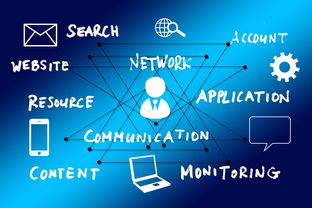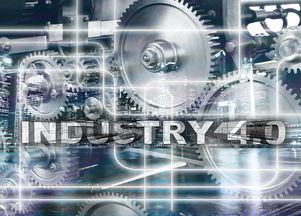In the modern era, technology has become an integral part of our lives, revolutionizing the way we work, communicate, and interact with the world around us. While the benefits of technological advancements are undeniable, it is crucial to recognize and address the potential harms they may bring. This article will explore some of the most significant examples of how technology can have detrimental effects on society, the environment, and individuals.
Privacy Invasion and Data Breaches
One of the most pressing concerns in the digital age is the invasion of privacy. With the increasing reliance on technology, personal information is more accessible than ever before. Data breaches have become a common occurrence, with companies like Equifax, Facebook, and Marriott suffering significant leaks that exposed millions of users' personal data. This not only leads to identity theft and financial loss but also erodes public trust in digital platforms.
Mental Health Impact
The proliferation of social media and digital communication has had a profound impact on mental health. Studies have shown that excessive use of social media can lead to increased feelings of anxiety, depression, and loneliness. The constant comparison to others' seemingly perfect lives and the pressure to maintain a certain online persona can be particularly harmful to young people, who are more vulnerable to these psychological effects.
Environmental Degradation
The production and disposal of electronic devices contribute significantly to environmental degradation. E-waste, which includes discarded computers, smartphones, and other electronic gadgets, is one of the fastest-growing types of waste worldwide. Many of these devices contain toxic materials that can leach into the environment, posing risks to human health and ecosystems. Additionally, the energy consumption required to power and manufacture these devices contributes to climate change.
Job Displacement
Automation and artificial intelligence have the potential to revolutionize industries by increasing efficiency and productivity. However, this comes at a cost. As machines become more capable of performing tasks traditionally done by humans, there is a growing concern about job displacement. While new jobs may be created in technology-related fields, the transition can be challenging for workers in industries that are most affected by automation, leading to unemployment and economic instability.
Cybersecurity Threats
As our reliance on technology grows, so does the risk of cyberattacks. Cybercriminals are constantly developing new methods to infiltrate systems, steal data, and disrupt services. High-profile attacks on government agencies, corporations, and individuals have demonstrated the vulnerability of our digital infrastructure. The consequences of such attacks can be severe, ranging from financial loss to national security threats.
Digital Divide
While technology has the potential to bridge gaps and provide equal opportunities, the digital divide remains a significant issue. Access to technology is not evenly distributed across different regions and socioeconomic groups. This disparity can exacerbate existing inequalities, as those without access to technology are at a disadvantage in terms of education, employment, and social inclusion.
Loss of Human Interaction
The rise of technology has also led to a decrease in face-to-face human interaction. While digital communication is convenient and efficient, it can also lead to a loss of social skills and genuine human connection. The overreliance on screens and virtual interactions can result in a lack of empathy and understanding, which are crucial for building strong relationships and communities.
In conclusion, while technology has brought about incredible advancements and conveniences, it is essential to be aware of its potential harms. By understanding these risks, we can work towards creating a more balanced approach to technology use, ensuring that it benefits society without causing undue harm. This involves fostering digital literacy, implementing robust cybersecurity measures, and promoting sustainable practices in technology production and disposal. It also requires ongoing dialogue about the ethical implications of technological advancements and the need for policies that protect individual privacy and promote social equity.
生活类科普知识:轻松掌握健康饮食、科学运动、心理调节、居家优化、时间管理,避开常见误区,提升每一天的生活质量
生活科普小知识大全:轻松掌握厨房清洁、衣物保养、家电使用等实用妙招,让生活更便捷快乐
菌类科普书籍推荐与高效阅读指南:轻松识别蘑菇,开启森林探索之旅
科普绘画简单又漂亮:轻松掌握科学与艺术的完美结合,让学习变得有趣又高效
科普菌的视界:用生动有趣的方式点燃你的科学热情,让复杂知识变得简单易懂
生活科普知识大全实用:让科学成为你的贴心生活顾问,解决日常难题更从容
菌类知识百科:从蘑菇识别到安全食用的完整指南,让你轻松掌握菌类奥秘
老胡是什么东西?揭秘胡锡进的真实身份与影响力,让你快速了解这位舆论场关键人物
科普绘画图片大全一等奖作品赏析:轻松理解科学之美,激发创作灵感









